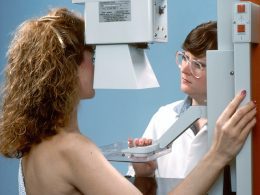NEW YORK, NY – As cancer continues to pose a significant public health threat, a shift in the approach to prostate cancer treatment presents itself. The focus is now shifting from traditional methods such as surgery to more innovative and nearly non-invasive treatments, including hormone therapy and stereotactic radiosurgery.
Based on years of data and a wealth of experience, medical practitioners at Radiosurgery New York (RSNY) have been pioneering the use of hormone therapy for prostate cancer, a technique which is transforming the lives of thousands of men across the country. RSNY’s physicians’ dedication to developing effective and minimally invasive treatment methods is helping to increase the quality of life of their patients and reduce the recurrence rate of the disease.

Historically, the surgical removal of the cancerous prostate has been a commonly used treatment method. However, data from RSNY suggests that this approach might not be as effective as initially thought. In fact, surgical treatment for Gleason 7 prostate cancer – a score indicating the intermediate aggressiveness of the disease – has a 54% relapse rate at 10 years.
For more aggressive forms of the disease, such as Gleason 8-10, the figures become even more alarming with a 77% relapse rate at ten years post radical surgery. The statistics suggest that perhaps the surgical approach, whether open or robotic, isn’t the ultimate solution.

RSNY presents a compelling argument for alternative treatment methods through its wealth of data collected over two decades. Using their unique program of seeds plus Fractionated Stereotactic Radiosurgery, RSNY boasts high control rates and high cancer-free survival rates at both five and ten years. The quality of life following this treatment also appears to surpass that of open surgery.
By utilizing technology such as Intensity Modulated Radiation Therapy (IMRT) and computer-aided radiation seed implantation placed under fluoroscopic, ultrasonic, and computer guidance, RSNY’s program is making significant strides. They are one of the few centers using Palladium seeds exclusively, a decision made solely based on patient care.
RSNY’s method, a human-led, technology-assisted one, aims to improve patient survival while maintaining sexual and urinary function and avoiding radical surgery. RSNY believes that this approach can help assure the highest likelihood of freedom from prostate cancer recurrence.
This is in stark contrast to the reality of both open and robotic surgeries, where a majority of patients experience sexual and urinary complications. Reports show that a staggering 97% of surgical patients face sexual problems and over 80% have urinary issues.

In contrast, the majority of RSNY’s patients remain cancer-free even ten years post-treatment. Data indicates a 90% cancer-free survival rate versus the 72% observed in open prostate surgery. At ten years, 30% of surgical patients remain cancer-free compared to 78% of those treated at RSNY.
Given these statistics and a lack of convincing evidence showing the superiority of robotic surgery, RSNY’s approach to prostate cancer treatment is paving the way for a paradigm shift in prostate cancer treatment.
However, it is essential to note that every patient’s case is unique. The most suitable treatment option always depends on the individual patient’s condition, medical history, and other personal factors. Therefore, patients and their doctors must thoroughly discuss all available treatment options, their potential benefits and risks, and their alignment with the patient’s personal health goals and values.
Prostate cancer continues to be a major health challenge. However, with continued research and innovations such as those being pioneered at RSNY, the future of prostate cancer treatment appears to be promising. The work being done by RSNY underscores the value of exploring new, more effective treatment strategies that can improve the survival and quality of life of those living with prostate cancer.












